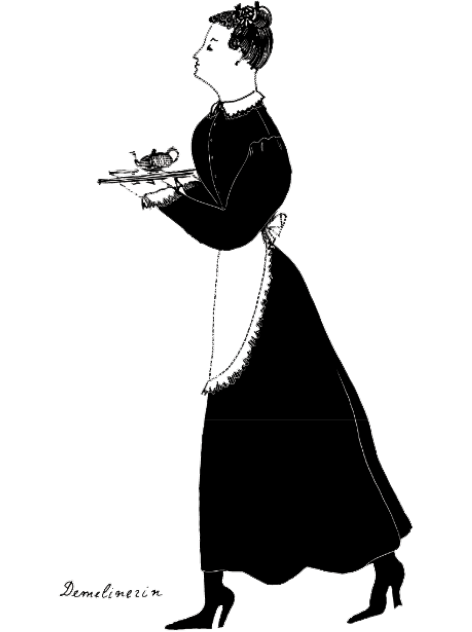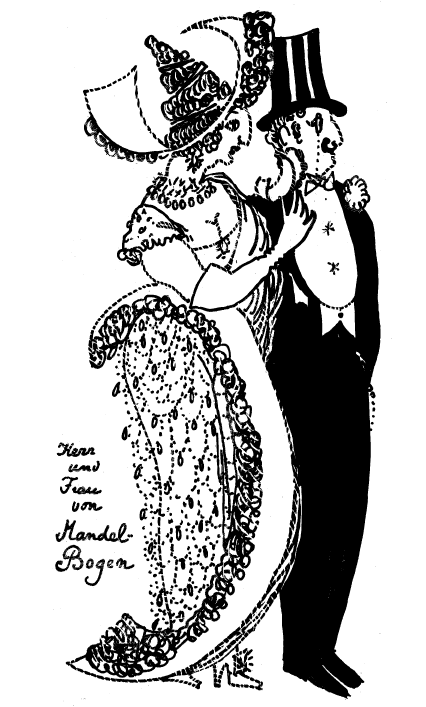The Glossary
Demelinerin
DE-ME-LI-NE-RIN
An endearing term the Viennese crafted for Demel’s spirited waitresses.

Demel-Damen
"DEMEL LADIES"
The women in charge of Demel for the first half of the 20th century: Anna Demel and her sisters Hermine ("Aunt Mina") and Flora.
“Wird die Dame selber streuen?”
“WILL THE LADY DUST [SUGAR] HERSELF?”
The Demelinerinnen’s all-important question when serving pastries that might require an extra dusting of powdered sugar.
“Haben schon gewählt?”
“HAS…CHOSEN YET?”
The Demelinerinnen’s traditional question when asking their guests for their wishes. Just like 200 years ago, our guests are addressed in the third person when asked for their wishes.
“Ja was denkt sich
da die Kaiserin!”
“WHAT WOULD THE EMPRESS SAY!”
Typical exclamation when a scandal among aristocratic circles was revealed.
Gabelfrühstück
"GABEL" (FORK) + "FRÜHSTÜCK" (BREAKFAST)
A breakfast taken at 10 a.m., more similar to a brunch or lunch. Carl Demel, for example, would always have a steak.
“Schnell, der Rollbalken!”
“QUICK, THE SHUTTERS!”
Exclamation when political demonstrations took place in the first district. A Demelinerin would walk outside and check if all was clear, before having the shutters rolled up again.
“Tataráta Apfelstrudel, Tataráta Birnenstrudel!”
“TATARÁTA APPLE STRUDEL, TATARÁTA PEAR STRUDEL!!”
Said by the Demelinerinnen when a conversation would go on for too long. “Tataráta” is a filler word that is similar to “bla bla bla”.
Puschka-muschka
"Pushka-mushka"
An invented term used to express a negative judgement. For example, when chocolate boxes were poorly arranged, when a hat was decorated with too many flowers, or when a singer was badly dressed.
Jour
French: "day"
Ladies of all classes would enjoy “jour” once a week or twice a month during the winter season. Tea, coffee, sweets and sandwiches would be served.
“Das schreckliche Unglück”
“The dreadful disaster”
Meaning the fall of the Habsburg Empire.
“Salonfähig”
“Respectable”
Applied to those who demonstrated proper behaviour in high society.
“Demelfähig”
“Demel-respectable”
Anyone still fitting this description?

“Er geht gut, er sitzt gut, er grüßt gut”
“He walks properly, sits properly, and greets properly”
The Demelinerinnen were particularly attentive to the manners of a gentleman. But gentlemen who walk properly, sit properly, and greet properly, are extinct these days.
“Guten Morgen”
“Good Morning”
This greeting was used until 4 pm at Demel’s coffeehouse – after that it was “Good Evening”.
